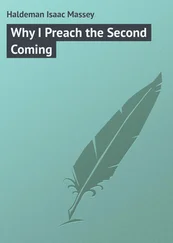Obadiah adjusts the rearview. He’s wearing his TransNamib hat, the hat his cousin Elias gave him when he retired from the railroad. Its peak grazes the top of the crumbling roof of the car, which, every time he moves his head, snows chunks of old yellow foam.
With his left hand at the top of the steering wheel, he gets right into it. It’s another story, he says. A good many years ago, he says, another new teacher arrived at Goas. He hadn’t been here long. Three weeks, perhaps. But three weeks is always enough for a man to fall in love with another man’s wife. The Roman Empire? It took Nero one drunken night and a box of matches to burn the place down. The Hundred Years’ War? An exaggeration. Advertising for Joan of Arc. God’s Flood? You think he needed forty days and forty nights to drown every man and beast and creeping thing? He — how do you put it? — overdid it. He was irritated. Wouldn’t you be? Five chapters in and already you’ve got to start again.
Obadiah moves the steering wheel only slightly, as if we’re moseying along a mostly straight road. Outside, around the car, the scrabbling chickens peck the dust.
So, Obadiah says, three weeks and the new teacher is insanely, lunatically, in love with another teacher’s wife. The teacher with the wife taught Standard Four math and the new teacher taught Standard Five Afrikaans. One day the husband noticed that the new teacher’s class was cacophonous, more cacophonous than usual. He went and stuck his head in the window of his new colleague’s classroom. Where’s Teacher? he asked. Thirty, forty voices answered, We know not, Teacher . But the teacher with the wife could see something in the eyes of those boys. They were mocking him. This happened in the seventies. Boys were less innocent then. The war made them more worldly. These boys didn’t want to study fractions, they wanted to kill whites. They used to climb up the hill by the cross and shout: Boers back to Kakamas! And what is it about war and lust? So yes, they mocked that teacher. Although their lips were tight, he could see the laughter in their eyes. While the cat’s away, the mice will play! The teacher then walked slowly toward the singles quarters. He didn’t knock on the new teacher’s door. It happened, by the way, in Kapapu’s old room, the room next to yours. A few minutes later, his wife followed him home across the sand, naked and guilty as Eve, clutching her clothes to her chest. We all watched — I am shamed to confess it — from our classroom windows. Neither the teacher nor his wife nor the new teacher left their room for the rest of the day. That night the teacher with the wife returned to the new teacher’s room and killed him with a bicycle spoke. But here is the strange part. His wife accompanied him. In the morning we found them together, leaning against each other outside the new teacher’s door, sleeping. Odd thing that, except for the blood on their clothes, they could have been angels. Lovers entwined. Romantic. The magistrate at Usakos sentenced them both. Eventually the husband was released — his offense being merely a crime of passion — but the wife remained in prison, she being guilty, under the laws of the time, of not one but two heinous crimes.
Obadiah reaches across me and pulls a rusty nail clipper out of the glove compartment and begins to trim his cuticles. Now that he’s stopped driving, the coming of the winter night, the flat dim bluelessness we wear along with our double sweaters and bed socks, gives me a weird sense that we’ve really gone somewhere. I watch the shadows Obadiah’s billowing shirts make as they swing on the line in the wind. Near the ashes of the fire pit are the remains of a laceless tennis shoe and the torn cellophane of an empty potato-crisp bag pecked clean by the roaming chickens.
The room next to mine?
Obadiah nods. To kill a man with a bicycle spoke is an ugly thing, he says, as he sweeps the nail slices off his shirt into his hand and tosses them out of what used to be a window. The new teacher’s stomach was so ripped apart, Obadiah says, the constables had to collect his insides up in a bucket. To many people the question was: Did she take part, or did she only watch? Yet I was never interested in this question. To myself the murder itself has never meant very much. It was the vigil by the door. Over the years what has remained is the way we found them slumped in the morning. Vengeance, true, but something else perhaps, something more difficult to define. I ask this: However it came about, there must have been satisfaction in such exhaustion, no? A sense of things being finished at last? Might it be that those two spent their best hours out there waiting for the light?
He stoops and begins to work on his toes.
Antoinette comes from around the front of the house and, without hesitation, chooses a bird from the coop, twirls it by the neck. It’s a circling. You flap your useless wings, you splay your crooked feet. Maybe Mavala Shikongo will hate Grootfontien, I say. Maybe she’ll come back.
Obadiah is too polite to laugh at anybody. Nor does he point out every time you’re a goon. He says nothing. In the waning, in the doomed light, I watch Antoinette raise a rusty cleaver on dinner.
13. UP ON THE HILL BY THE CROSS
The school hunkers in the center of the farm, near the intersection of three dry rivers. It was thought that this would ensure enough groundwater to support the teachers and the learners, even during the driest years.
The view from the top of the hill extends all the way from the mission — the school buildings, the church, the hostel — to the base of the Erongo Mountains. And you can see all three rivers, channels of grassless sand, meeting for a stretch near Goas and then parting for good. The Gamikaub heads straight north across the veld, ridged as a tar road, while the Kuiseb meanders west, where it snakes a narrow gorge into the Erongos, the beginning of its long desert haul to the Atlantic. The Toanib River, the Goas favorite, has no sense where it’s going. It winds beneath Krieger’s gleaming razor-wire fence, but then wanders back onto Goas, twisting south, where it seems to die out in the scrub.
Every evening the five of us — Pohamba, Obadiah, Festus, Vilho, and I — we’d stretch out on cushions stolen from the staff-room chairs and pass around a two-week-old Windhoek Advertiser . You didn’t read the Advertiser for news. You read The Namibian for news. But who wanted news? After a week in the classroom, we wanted the real dirt, the smut and the glory. A fifty-thousand-rand sweepstakes on page 3 and multiple sets of naked breasts (in rainbow colors, spirit of the new nation) on the foldout. It was a good newspaper. Pohamba had it first and read out loud a sampling of that day’s headlines:
IDI AMIN HAS ADVANCED SYPHILIS
NAMIBIAN WHITES PLAN MASS EXODUS TO PARAGUAY
US VP QUAYLE TO VISIT WINDHOEK
DOG POISONER ACTIVE IN TSUMEB
TWISTED AND HORNY, WIFE TAKES GRANDPA LOVER
MISS NAMIBIA PAGEANT BATHING SUIT MISHAP. PHOTOS, PAGE 5
“Hey, let’s see those last two,” Festus said.
And when we were through with the paper, I’d either sleep or watch the veld. Pohamba liked to say the only absolute of Goas is this: The same veld that wishes you good night will kick you in the head in the morning.
But Obadiah would say, That’s blindness. “Empty? The veld? You must be looking into your own heart, Teacher Pohamba.” Obadiah would say the veld changes so much, it’s hard to keep track. One day you’ll be out walking beyond the Voortrekker graves, and there, in a place where there had been nothing the day before but nameless scrub, will be a rare clump of stinkbush. Another day, in that same spot, poison mustard berries, or the more deadly euphorbia. It’s not that nothing grows on Goas, it’s only that it’s nothing we can eat. And the grass? The Boers call it upslang because it shoots up overnight. After rain, it’s green for a day. The next day it’s dry as straw. Watch the dry grass alone, he would say. How some hours it leans with the wind, other hours fights against it. And more than movement — consider the light. In late morning, the Erongos to the west look like mounds of peppered cheese. And think of the mirages that pool at the base of those mountains. You walk and you walk and that water stretches away, but also, at every step, gets bigger. A pond becomes a lake, becomes an ocean. It’s merely a collision of heated and unheated air causing an optical refraction. But what, I ask, do climatological proofs matter to a thirsty man?
Читать дальше












